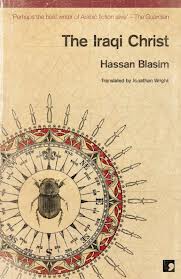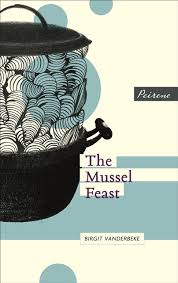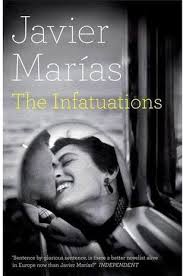This year Tony and I have brought together the biggest shadow jury . But a truly global jury for a prize for world fiction . We have bloggers from the US , UK , France ,India and Australia .I feel we will really get the IFFP noticed around the world .
Chairman Stu blogger at winstonsdad , champion of translated fiction and starter of this shadow IFFp prize bringing the world of fiction to the readers so far 500 books from a 100 countries .Also twitter fan at @stujallen started hashtag #translationthurs to promote translated fiction . By day a support worker working with people with learning disabilties for the last twenty years .
Tony Malone is an Englishman based in Melbourne who teaches English as a second language to prospective university students .He is interested in foreign languages and literature , focusing in particular on German , Japanese and Korean . He blogs about literary fiction in translation at Tony’s reading list and can be found on twitter at @tony_malone .
Joe Schreiber was born in the US, but has lived most of his life in or near Calgary, Alberta, Canada. He would really welcome a change should his adult children ever leave the nest. Presently on leave from a career in human services, he is finding more time for reading and writing. He has had a long standing interest in international literature, both in English and in translation, primarily from Europe and Africa. He blogs at https://roughghosts.wordpress.com/ and is learning to use Twitter at@roughghosts
Messy Tony backs up for his second IFFP Shadow Jury and having a long history of charitable work with other cultures he’s recently been a convert to learning about the many varied cultures through the literary eye. Blogger for Messenger’s Booker, Tony has been known to decline romantic dinner dates for a thick book and a blanket. Being an occasional Central Australian desert dweller, a good book helps with the isolation (maybe there’s a book in that???) tweets at @messy_tony
Emma Cazabonne is French and has been living in the US for 15 years. After university studies focusing on foreign languages, she has been an English-French translator for about 25 years. She is currently translating into French novels by Tanya Anne Crossby. She is also an online French tutor and the owner and sole operator of the virtual book tour company France Book Tours. She blogs at Words And Peace. She is especially interested in books in French as well as translated from the French and the Japanese. She can be found on Twitter @wordsandpeace
Chelsea McGill is an American living in Kolkata, India who recently got married and finished a Master’s degree from the University of Chicago. She is interested in the anthropological and psychological aspects of international literature. She blogs at The Globally Curious and tweets from @chelsea_mcgill4.
Julianne Pachico was born in Cambridge, grew up in Colombia and now lives in Norwich, where she is completing her PhD in Creative and Critical Writing at the University of East Anglia. She is working on a linked collection of short stories and blogs at never-stop-reading.com. Twitter: @juliannepachico
Clare started blogging at A Little Blog of Books three years ago. When she’s not doing her day job in London, she blogs mostly about contemporary literary fiction and particularly enjoys reading books by French and Japanese authors. Twitter: @littleblogbooks
David Hebblethwaite was born in the north of England and now lives in the south with a lot of books. He’s trying to read more from around the world, and to work out exactly how and why his reading tastes have changed recently. He blogs his thoughts at David’s Book World, and tweets as @David_Heb.
Grant Rintoul teaches English in Scotland, where, amid towering piles of marking and bringing up two children, he somehow still manages to find the time to read. He blogs at https://1streading.wordpress.com/ attempting to keep his English language reviews proportionate to those from the rest of the world. You can follow him on Twitter@grantrintoul where, among all the literary links, he will occasionally irritate you with obscure references to Scottish politics.















